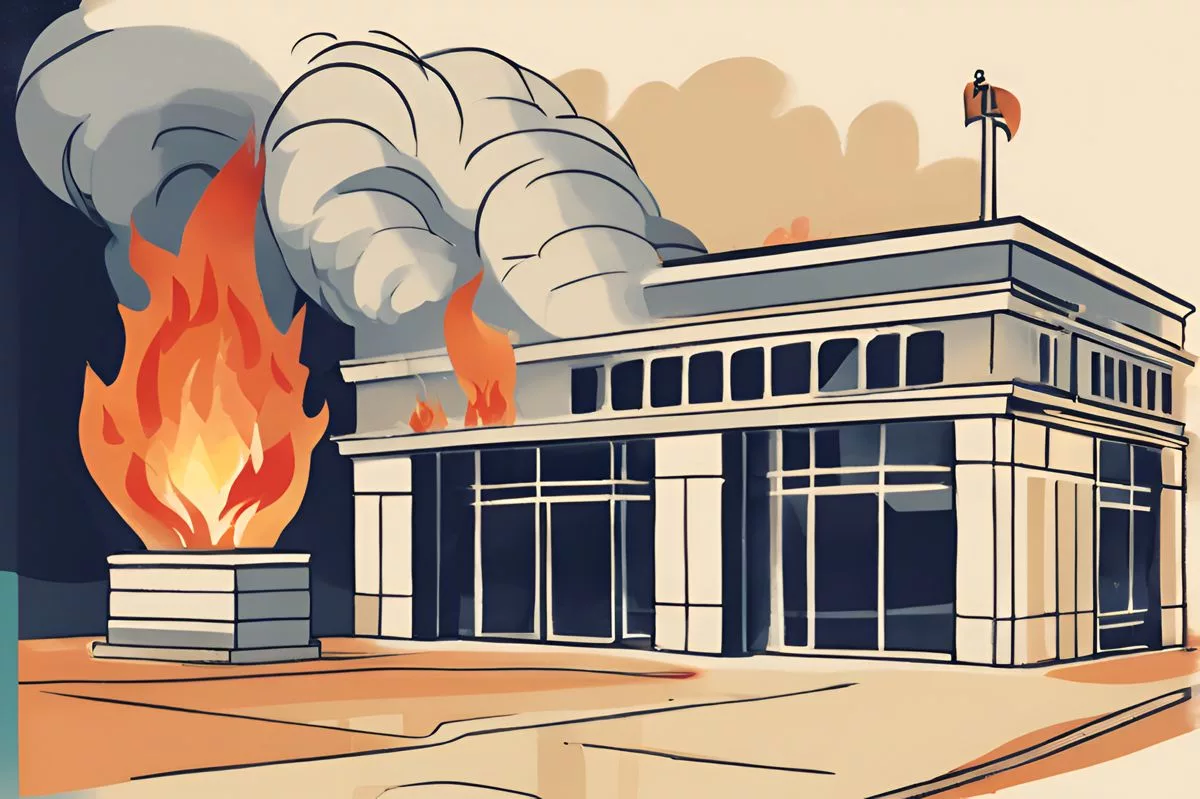South Africa’s property market is a robust platform for homeowners, buyers, sellers, and investors. While the Covid-19 pandemic caused significant obstacles for the market, there is still hope for the future. Interest rate reductions later this year could provide a much-needed boost, and the upcoming two-pot retirement system launch could potentially increase household disposable income by a large amount, providing a lift to the property market. Despite the challenges, the market remains resilient, embodying the unyielding optimism and spirit of South Africa itself.
The Property Market’s Challenges and Resilience Amid a Global Pandemic
The Covid-19 crisis has caused significant obstacles for the South African property market. The market has experienced prolonged periods of inactivity due to the pandemic, and the subsequent 475 basis point hike in interest rates has stunted the growth of property prices. Despite these challenges, there is still optimism for the future, and potential interest rate reductions later this year could provide the market with a much-needed boost.
The core of South Africa’s financial activity is its robust real estate market, a crucial platform where homeowners, potential buyers, sellers, and a plethora of other participants intersect. The upcoming decision on interest rates is awaited with bated breath. Yet, a glance at history offers a wealth of knowledge about the market’s path and the significant impact of broader economic variables on it.
A close examination of the South African real estate market reveals its share of ups and downs. Over recent years, there’s been an indisputable dip in property values, an observation made by industry insiders, including those at Jawitz Properties. This slump doesn’t only affect homeowners, but it also hinders individuals’ capacity to amass wealth and prepare for their golden years, given the significant reliance on realty equity for retirement funds.
The Property Market’s Challenges and Resilience Amid a Global Pandemic
The advent of the Covid-19 crisis amplified these existing obstacles. A near-standstill was observed as commerce and trade activities came to a halt, with the deeds office being inactive for a quarter of a year. Despite these constraints, the tenacity of the property market was evident as it gradually bounced back, although hurdles remain.
Herschel Jawitz, the experienced CEO of Jawitz Properties, eloquently outlines these issues. He highlights the debilitating impacts of soaring inflation, consumer strain, flagging confidence, and stagnant economic expansion on the real estate market. The fiscal stimuli rolled out during the pandemic, like the South African Reserve Bank’s (SARB) considerable reduction in repo rates, momentarily revived the market. Yet, they failed to cushion it from the subsequent 475 basis point hike in interest rates since November 2021. The current repo rate is a formidable 8.25%, and the prime lending rate is 11.75%.
The Monetary Policy Committee’s (MPC) position that these escalated rates are bound to persist, at least until inflation reaches its target midpoint of 4.5%, compounds the problem. These onerous interest rates, coupled with slow economic growth and dwindling disposable income, have stunted the growth of property prices. The outcome? Homeowners are forced to sell their properties at rates lower than their acquisition costs, leading to an actual decrease in property value. This scenario poses a risk to both economic development and retirement strategies.
The Complex Nature of South Africa’s Property Market
The South African real estate market is a multifaceted entity, swayed not only by financial and economic elements but also the psychological mindset of consumers and businesses. Investments in real estate, typically viewed as long-term undertakings, are profoundly impacted by market sentiment. Low confidence among consumers and businesses can discourage potential investors.
Nonetheless, amidst these adversities, optimism remains undeterred. Jawitz maintains this positive outlook, pointing to recent enhancements such as improved electricity supply from Eskom, a new coalition government, and potential interest rate reductions later this year.
The Future Outlook and the Potential Boost from Two-Pot Retirement System
In terms of future prospects, Jawitz expresses excitement about the upcoming two-pot retirement system, slated for launch in September. This revolutionary system could potentially increase household disposable income by an astonishing R79 billion in the final quarter of 2024. Jawitz conjectures that some of these extra funds might be used to reduce debt or invest in real estate, providing the residential property market a much-needed uplift.
It’s evident that the South African property market mirrors the wider economy of the country, embodying the interaction of various economic forces. Its journey, characterized by peaks and troughs, offers a compelling narrative of how external macroeconomic factors can dictate the fate of homeowners, investors, and sellers alike. Despite the challenges, the market’s capacity for resilience and expansion is evident, mirroring the unyielding optimism and spirit of South Africa itself.
1. What is South Africa’s property market?
South Africa’s property market is a robust platform for homeowners, buyers, sellers, and investors. It is a crucial intersection where various participants come together.
2. What are the challenges faced by South Africa’s property market?
The Covid-19 pandemic caused significant obstacles for the market, and the subsequent 475 basis point hike in interest rates has stunted the growth of property prices. Soaring inflation, consumer strain, flagging confidence, and stagnant economic expansion have also had debilitating impacts on the real estate market.
3. Is there hope for the future of South Africa’s property market?
Yes, potential interest rate reductions later this year could provide the market with a much-needed boost. Also, the upcoming two-pot retirement system launch could potentially increase household disposable income, providing a lift to the property market.
4. What is the current repo rate and prime lending rate in South Africa?
The current repo rate is 8.25%, and the prime lending rate is 11.75%.
5. How does consumer and business confidence impact the South African property market?
Low confidence among consumers and businesses can discourage potential investors, which can impact the real estate market.
6. What is the potential impact of the two-pot retirement system launch on the South African property market?
The two-pot retirement system launch could potentially increase household disposable income by an astonishing R79 billion in the final quarter of 2024. Some of these extra funds might be used to reduce debt or invest in real estate, providing the residential property market a much-needed uplift.












